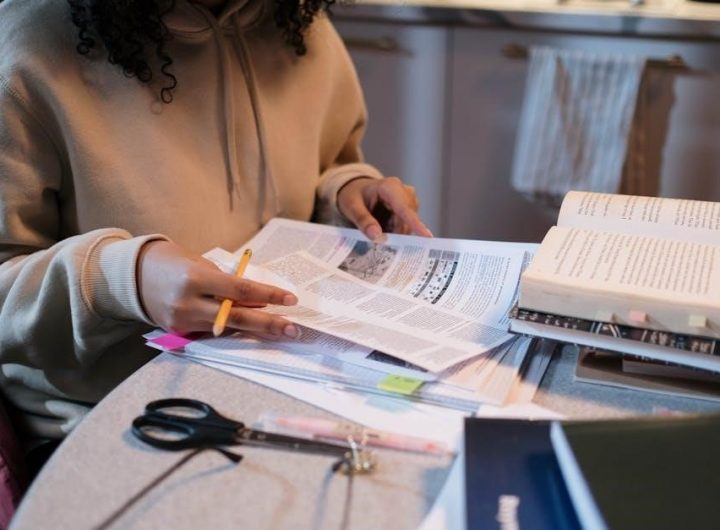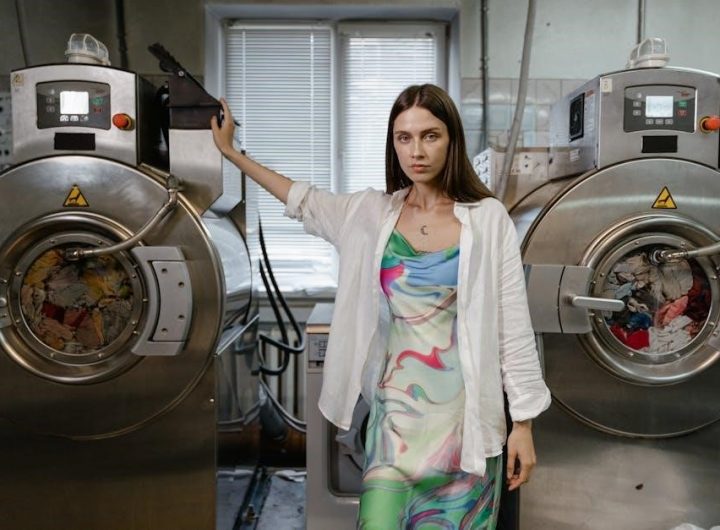Finding “The Catcher in the Rye” as a Free PDF
Locating a free PDF of “The Catcher in the Rye” requires careful consideration of legality and ethical implications․ Many websites offer downloads, but verifying authenticity and source is crucial to avoid copyright infringement․
Legality and Copyright
Downloading copyrighted material without permission is illegal․ “The Catcher in the Rye” is protected by copyright, meaning unauthorized distribution or reproduction is a violation․ Free PDFs found online are often illegally uploaded․ Downloading these infringes on the author’s and publisher’s rights, potentially leading to legal consequences for the downloader․ Always respect intellectual property rights․ Legitimate access to copyrighted works should be sought through authorized channels such as libraries, bookstores, or e-book retailers․ Purchasing the book ensures you’re legally accessing the content and supporting the creators․ Consider the ethical implications before downloading from questionable sources․ Remember that respecting copyright is crucial for supporting authors and fostering a healthy creative environment․ Unauthorized distribution undermines the economic viability of literary works and creative endeavors․
Ethical Considerations of Free Downloads
Downloading free PDFs of copyrighted books raises several ethical concerns․ While the temptation of free access is strong, it’s crucial to consider the impact on authors and publishers․ Authors rely on sales to support their livelihoods and future work․ Downloading illegally obtained copies deprives them of their rightful compensation and diminishes their ability to continue creating․ Publishers also invest significantly in the production and distribution of books․ Free downloads undermine this investment and harm the publishing industry as a whole․ Beyond the financial implications, downloading pirated material is ethically questionable․ It’s akin to stealing, violating the intellectual property rights of the creators․ Choosing ethical consumption habits supports a fair and sustainable creative ecosystem․ Consider the authors’ and publishers’ efforts and respect their creative work by obtaining books through legitimate channels․
Where to Look for Legitimate Free Access
Finding legitimate free access to “The Catcher in the Rye” might be challenging, as copyright restrictions usually apply․ However, some avenues exist․ Public libraries often offer free ebook lending services through apps or online portals․ Check your local library’s website or app; many have extensive digital collections․ Project Gutenberg, a renowned repository of public domain books, could potentially host older editions if the copyright has expired․ Always double-check the source’s legitimacy before downloading․ University libraries sometimes provide digital access to their collections for students and faculty; check if your institution offers online access to “The Catcher in the Rye․” Archive․org also maintains a vast archive of digital materials․ While it might not always have the book in PDF format, it’s worth exploring․ Remember that free access to copyrighted material is rare; respecting copyright is crucial․
Exploring Online Resources
Numerous online resources may offer “The Catcher in the Rye” as a free PDF․ However, exercising caution and verifying legitimacy is crucial before downloading any files․
Project Gutenberg and Similar Initiatives
Project Gutenberg, a renowned digital library offering public domain books, might include “The Catcher in the Rye” if its copyright has expired․ However, “The Catcher in the Rye” is still under copyright protection in many regions, meaning a free legal download through Project Gutenberg or similar initiatives is unlikely․ Always double-check the copyright status before attempting to download any ebook from such sources․ Many websites claim to offer free PDFs, but these may be illegal copies, potentially exposing users to malware or violating copyright laws․ Legitimate digital libraries often provide legal access to copyrighted works through partnerships with publishers or through purchase or rental options․ Therefore, while Project Gutenberg and similar projects are valuable resources for public domain works, expecting to find “The Catcher in the Rye” there for free download is unrealistic․ Always prioritize legal and ethical means of accessing literary works․
Open Library and Archive․org
Open Library and Archive․org are extensive digital libraries offering a vast collection of books, often including various editions and formats․ While they may host digitized versions of “The Catcher in the Rye,” the availability of a free PDF download depends on copyright status and licensing agreements․ Many books on these platforms are available only for borrowing or viewing online, not for direct download as PDFs; Remember that these platforms primarily focus on preserving and providing access to cultural works, respecting copyright restrictions wherever applicable․ Therefore, while you might find “The Catcher in the Rye” listed, a free PDF download might not be an option․ Always check the specific terms of use and licensing details for each book before attempting to download or access it․ Downloading copyrighted material without permission is illegal and unethical․
University and Library Digital Collections
Many universities and libraries maintain online digital collections, often including digitized books from their archives․ These collections may contain “The Catcher in the Rye,” but access is typically restricted to students, faculty, and staff of the institution; Public access is often limited or requires a paid subscription․ Even if you find a digitized version, direct download as a PDF might not be permitted․ Copyright restrictions usually apply, and unauthorized download or distribution is prohibited․ Explore the websites of major universities and research libraries; their digital collections may offer access to the novel through online viewing․ Remember to always respect copyright laws and terms of service when accessing online materials from any institution․ Accessing materials without permission is illegal․
Understanding File Formats and Compatibility
Ensure your PDF reader supports the downloaded file version; older versions may cause display problems; Troubleshooting may involve updating your software or using a different reader․
PDF Readers and Software
Many free and paid PDF readers are available for various operating systems (Windows, macOS, Linux, iOS, Android)․ Popular choices include Adobe Acrobat Reader (free, widely compatible), Foxit Reader (free, feature-rich), and SumatraPDF (free, lightweight, open-source)․ The choice depends on individual needs and preferences․ Some readers offer advanced features like annotation, text editing, and form filling, while others prioritize speed and simplicity․ Before downloading a PDF of “The Catcher in the Rye,” it’s wise to check if your current PDF reader is up-to-date and capable of handling the file, especially if it’s a scanned image-based PDF rather than a text-based one․ Outdated software may lead to compatibility issues such as incorrect character display, rendering problems, or inability to open the file at all․ Consider upgrading your PDF reader to the latest version to ensure seamless viewing and navigation of your downloaded copy․ A compatible reader is critical for a smooth reading experience․
Different PDF Versions and Potential Issues
PDF versions, ranging from 1․0 to the latest, can impact compatibility and functionality․ Older versions might lack support for features found in newer ones, potentially leading to display issues or inability to open the file with certain readers․ For example, a PDF created using an older version might not render fonts or images correctly in a newer reader, or vice versa․ Some older readers might struggle with PDFs created using advanced features in newer versions of PDF creation software․ Variations in compression techniques also affect file size and quality․ Highly compressed PDFs might result in lower image resolution or text clarity, while less compressed PDFs occupy significantly more storage space․ Before downloading, checking the PDF version and its compatibility with your reader will ensure a smoother experience․ Consider the file size as well, a larger file might indicate higher quality but also slower download speeds․ Understanding these factors minimizes potential frustrations․
Troubleshooting Download and Access Problems
Downloading and accessing free PDFs of “The Catcher in the Rye” can present various challenges․ Slow download speeds might be due to network issues or server congestion; try again later or use a different network․ If the download is corrupted, resulting in an unopenable file, try downloading from an alternative source․ Incompatibility with your PDF reader could cause display errors; update your reader or try a different one․ Insufficient storage space on your device can also prevent downloads; free up space before attempting another download․ If the downloaded file is password-protected or requires specific software, the source might not be legitimate; exercise caution with such files․ If the website itself is causing problems, check for browser errors or try a different browser․ Remember to always scan downloaded files for viruses before opening, ensuring your device’s security․ Persistent problems could point to a faulty download link or a temporary server outage․
Assessing the Quality of Online PDFs
Variations in text formatting, potential errors, and inconsistencies are common in online PDFs․ Verify the source’s legitimacy and compare it with a known reliable version to ensure accuracy․
Variations in Text and Formatting
Online PDFs of “The Catcher in the Rye” often exhibit inconsistencies in text and formatting․ These variations can range from minor discrepancies in font styles and sizes to more significant alterations affecting paragraph breaks, chapter divisions, and even the inclusion or omission of entire sections of text․ Some versions might employ different typesetting conventions, leading to uneven spacing or awkward line breaks․ The quality of scanned images, if the PDF is derived from a physical book, can also greatly impact readability, with blurry or distorted text making comprehension challenging․ Furthermore, some freely available PDFs might be edited versions, potentially including unauthorized annotations, commentary, or even deliberate changes to the original text, compromising the integrity and authenticity of Salinger’s work․ Therefore, carefully comparing the version you find to other known reliable sources is crucial to ensure you have a faithful representation of the novel․
Potential for Errors and Inaccuracies
Downloading free PDFs of “The Catcher in the Rye” carries a significant risk of encountering errors and inaccuracies․ The process of converting a physical book or a digital file into a PDF format can introduce typos, missing words, or incorrectly rendered characters․ Furthermore, the lack of editorial oversight in many freely available online versions means that these errors often go uncorrected․ Poorly scanned PDFs, created from low-resolution images, may contain blurred text, making it difficult to decipher words or phrases․ In some instances, significant portions of text might be missing altogether, leading to an incomplete and ultimately unsatisfactory reading experience․ The possibility of deliberate alterations or tampering also exists, as unscrupulous individuals might modify the text for various reasons․ It’s crucial to be aware of these potential issues and to exercise caution when using freely available online sources for literary works, especially those without a clear provenance or verification process․
Verifying the Authenticity of the Source
Before downloading any free PDF of “The Catcher in the Rye,” it’s essential to verify the authenticity and reliability of the source․ Look for reputable online libraries or archives known for their commitment to accurate digital preservation․ Check the website’s “About Us” section for information on its mission and history․ Legitimate sources usually provide details about their digitization processes and copyright compliance․ Be wary of websites with unprofessional designs, numerous pop-up ads, or broken links; these are often indicators of unreliable or potentially malicious sites․ If possible, compare the available PDF against a known legitimate copy to check for discrepancies in text or formatting․ Consider the file’s metadata for clues; a publication date significantly different from the original 1951 publication date should raise concerns․ Remember, downloading from untrusted sources may expose your device to malware or lead to copyright infringement issues․ Prioritize your safety and respect for intellectual property rights․
Beyond Free PDFs⁚ Alternative Access
Explore libraries, both physical and digital, for borrowing options․ Consider purchasing a used copy or renting an ebook for legal and reliable access to Salinger’s classic novel․
Public Libraries and Interlibrary Loan
Your local public library is an excellent first stop in your quest for “The Catcher in the Rye․” Most libraries maintain extensive collections of both classic and contemporary literature, and “The Catcher in the Rye” is almost certainly among their holdings․ Check their online catalog or visit in person to see if they have a physical copy available for borrowing․ If your library doesn’t have it, don’t despair! Many libraries participate in interlibrary loan (ILL) programs․ This service allows you to request books from other libraries within a network, expanding your access to a much wider range of titles․ Simply ask a librarian about the ILL process; they’ll guide you through the steps required to request the book from another library that owns it․ Remember to factor in some time for the ILL process, as it can take a few days or even weeks for the book to arrive at your local branch․ With a little patience and the help of your local library, you should be able to access “The Catcher in the Rye” legally and without cost․
E-book Rentals and Purchases
While seeking a free PDF, consider the convenience and legality of e-book rentals and purchases․ Many online platforms, such as Amazon Kindle, Google Play Books, and Apple Books, offer digital versions of “The Catcher in the Rye․” These platforms often provide rental options, allowing you to access the book for a limited time at a lower cost than purchasing․ This can be a practical solution if you only need to read the book once․ Alternatively, purchasing the e-book grants permanent access to the text․ Prices vary depending on the retailer and any available deals, but purchasing often represents a cost-effective choice compared to repeatedly renting or incurring potential risks associated with illegal downloads․ Remember, purchasing or renting ensures you’re supporting the author and publisher while enjoying a high-quality, legally obtained copy of the book․ Explore these options for a hassle-free and ethical reading experience․ Buying or renting also ensures access to a version with proper formatting and free from potential errors found in illegally obtained copies․
Used Bookstores and Online Marketplaces
For a tangible copy of “The Catcher in the Rye,” explore used bookstores and online marketplaces like eBay or Abebooks․ These offer a cost-effective alternative to purchasing new books․ Used bookstores often have a wide selection of classic literature, including J․D․ Salinger’s novel, at significantly reduced prices․ Browsing their shelves can be a rewarding experience for book lovers․ Online marketplaces provide a vast inventory from various sellers worldwide, allowing you to compare prices and find the best deal․ Before purchasing from an online marketplace, carefully review the seller’s ratings and descriptions to ensure the book’s condition meets your expectations․ Consider shipping costs when comparing prices․ While not a free option, buying a used copy is an environmentally friendly and affordable way to acquire a physical copy of this literary classic, avoiding the potential risks and legal issues associated with unauthorized online downloads․
 the house across the lake pdf
the house across the lake pdf  heard on the wall street pdf
heard on the wall street pdf  locating the epicenter of an earthquake worksheet pdf answer key
locating the epicenter of an earthquake worksheet pdf answer key  sie exam study guide pdf
sie exam study guide pdf  48 laws of power summary pdf
48 laws of power summary pdf  citi program quiz answers pdf
citi program quiz answers pdf  mitsubishi d700 instruction manual
mitsubishi d700 instruction manual  indesit washing machine manual iwdc6125
indesit washing machine manual iwdc6125